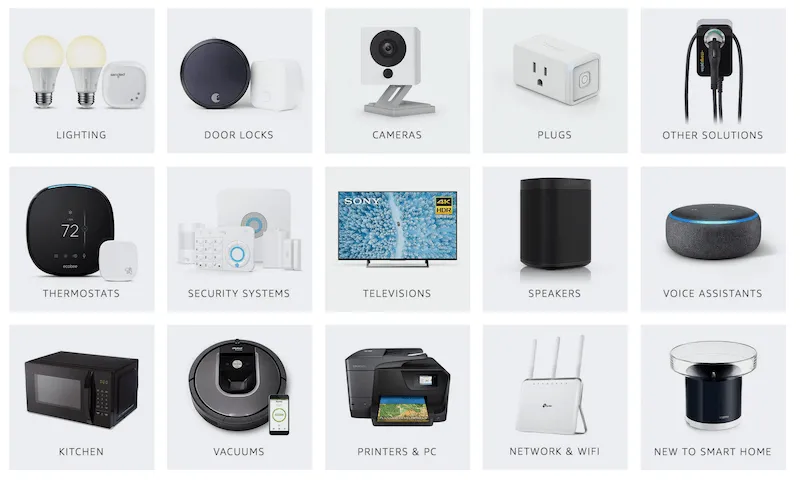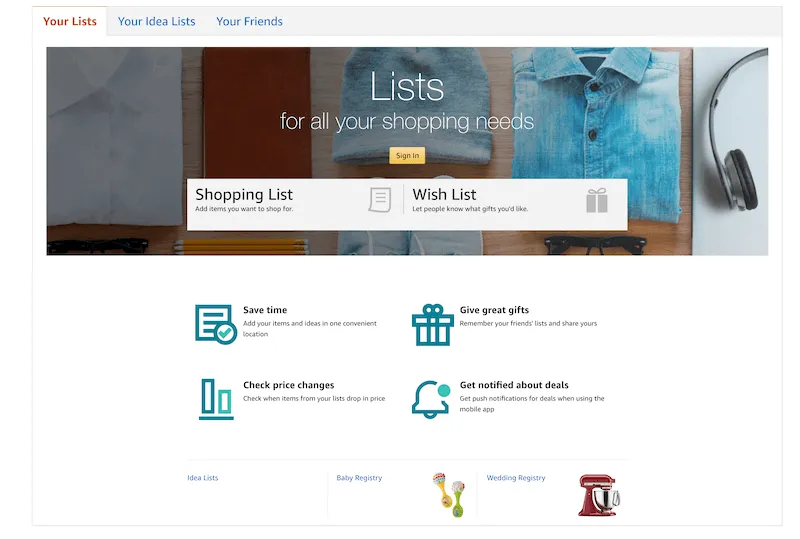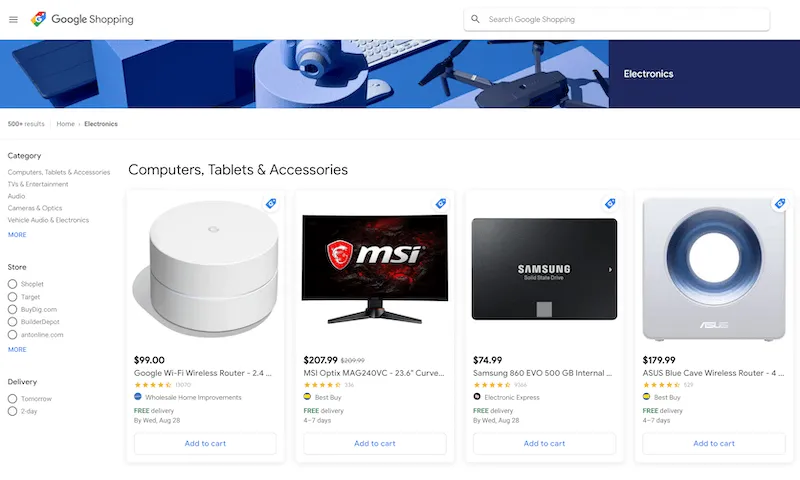Black Friday and Cyber Monday deals are looming on the horizon.

Have you been planning to invest in your business but just couldn’t come to terms with paying the full price (especially in this economy)? I know where you’re coming from. And if you can wait, it’s definitely worth holding out for Black Friday/Cyber Monday.
For small business owners, the Thanksgiving shopping season is a perfect opportunity to refresh inventory and acquire new business equipment on a budget. Although deals are still some time away, it’s always a good idea to prepare early on and be ready when they arrive.
Here’s everything you need to know to shop in 2022.
- What’s the Story Behind Black Friday and Cyber Monday?
- Should You Participate in Black Friday/Cyber Monday?
- Where to Look for Black Friday and Cyber Monday Deals?
- Computers and Mobile Devices
- Smart Home and Office
- VPN and Antivirus Software
- Domains and Hosting
- Stationery and Office Supplies
- Business Education
- Four Black Friday and Cyber Monday Buying Tips
- 1. Create a Wishlist
- 2. Set up a Budget
- 3. Do Your Research
- 4. Check Return Policies and Read the Fine Print
- Reinvest in Your Business
What’s the Story Behind Black Friday and Cyber Monday?
There’s been some disagreement as to when and where the term Black Friday originated. The most accurate account seems to link its origins with the ruckus that occurred in Philadelphia in the 1950s.
In preparation for the annual Army-Navy football game, city police would have their hands full controlling crowds, preventing theft, and handling increased traffic in the city. Given the unfavorable circumstances, law enforcement officers designated the Friday after Thanksgiving “Black Friday.”
Cyber Monday, on the other hand, came into existence as an extension of the shopping season. The term was coined in 2005 to describe the online sales spike observed on the first Monday after Thanksgiving. You can think of it as Black Friday’s little brother that focuses on online shopping.
Here are some interesting insights on the two:
- The National Retail Federation (NRF) reported that over 165 million Americans participated in the 2018 shopping season. The average spending per person between Thanksgiving and Cyber Monday averaged $313.29 per person
- According to Adobe Analytics, Cyber Monday 2018 hit a $7.9 billion mark, thus becoming ”the single largest shopping day in U.S. history.” The average spending across the U.S. peaked at $138 per person
- A survey by BlackFriday.com found that the most popular categories of items during the last Black Friday were apparel (23% of consumers), technology (22%), toys (18%), smart home appliances (16%) and gift cards (12%)
Should You Participate in Black Friday/Cyber Monday?
The question you’re probably asking yourself is: “Should I jump into it?”
If you’ve been planning a business purchase for quite some time but wanted to wait for better deals, then the answer is a resounding yes. Whether it’s a new desk or an updated piece of software, pushing the decision to later in the year can help you save some serious money.
Another reason you should postpone business purchases is that you can get great deals on bundles. For instance, many retailers offer laptops and desktop computers bundled with pieces of software you’d have to pay more for if bought separately.
So, when is it not a good idea to hunt for deals?
As a freelancer, I sometimes have a hard time discerning if a certain purchase is really a business investment or a personal whim. Trying to qualify such purchases as a business expense is nothing but burning cash. The same goes for replacing stuff that’s still OK and going into debt when you don’t really need to.
If none of the above applies to you, then you’re clear to go!
Where to Look for Black Friday and Cyber Monday Deals?
For many, the hunt for the best deals is part of the allure of the shopping season. But if you don’t feel like browsing scores of websites to make a purchase, you should check out the following vendors first.
Computers and Mobile Devices
As usual, the best places to look for tech items will be Amazon, eBay, Best Buy, and Walmart. Each of these vendors has a track history of solid discounts on notebooks, desktop computers, tablets, and TVs, so be sure to check them out.
You should also pay attention to major manufacturers like Dell, HP, or Lenovo. For instance, Dell’s Cyber Monday entails free shipping and early doorbuster deals you can sign up for on its website. Lenovo has also already announced doorbuster sales where you’ll be able to pick up business notebooks, tablets, and workstations.
Smart Home and Office
IoT (Internet of Things) devices are becoming increasingly popular in our homes. So why not use Black Friday and Cyber Monday deals to future-proof your surroundings?
Amazon is often the first place to look for exclusive deals on Alexa-enabled smart speakers, intelligent door locks, smart plugs, and a whole range of security systems that will make your home office more connected and you more productive.
Google Store is yet another motherlode of bargains that you should drop by this November. You can expect discounts on smart home devices like Nest doorbells and thermostats or Google Home speakers.
VPN and Antivirus Software
Digital security is a key concern for those running a small business these days (read my article on digital security to learn why). If you don’t use a VPN (virtual private network) and antivirus software yet, you should brush up and hunt for deals in this department.
Over the past two years, NordVPN has dropped the price of all its long-term plans by up 75% (there’s still an ongoing sale this very moment) so you should check their website. You can expect similar offers from other popular VPN providers like ExpressVPN or Tunnelbear.
Since many antivirus software vendors cut their prices last year, it might be a good idea to look for deals at the source and regularly visit the websites of Avast, Bitdefender, Kaspersky, Norton, or McAfee for ads. In 2018, discounts were as high as 60% and you can expect similar deals this year.
Domains and Hosting
If you feel that your business website could use an upgrade (or you’re still considering creating one), you might want to stay on the lookout for upcoming deals from domain vendors and hosting service providers.
In 2018, you could snatch tasty deals from SiteGround, HostGator, and BlueHost, among others. The discounts run up to 75% off for annual plans and included cheaper domain names across several vendors.
On that note, if you need some help with creating your business website or a portfolio, be sure to read the Guide to Creating an Online Portfolio.
Stationery and Office Supplies
Black Friday weekend is also a good opportunity to restock home office supplies and stationery or churn out branded marketing materials. Since you’ll be shopping close to the holiday season, you could also consider ordering some seasonal gifts for your customers. You can expect to find interesting deals at Staples, Vistaprint, and Moo.
Business Education
Black Friday shopping weekend is not only about tangible assets. Every savvy business owner knows that self-education is paramount if you want your company to prosper. For that reason, you should be vigilant about looking for affordable learning opportunities.
In 2018, Amazon offered a discount on its Audible subscription (53% off the three-month plan and additional perks for new subscribers). If you don’t have the time to read paperbacks, audiobooks may become your treat this year.
The rising popularity of MOOC (massive open online course) means more deals popping up each year. It might be a good idea to check online learning sites like Udacity, Udemy, Khan Academy, FutureLearn, and EdX for exclusive offers and promo codes for their courses.
Four Black Friday and Cyber Monday Buying Tips
1. Create a Wishlist
Before you roll up your sleeves and start hunting for deals, you should have a solid idea of what you need and why you need it in the first place. Give your inventory an honest review and decide where to best allocate your money.
Many online retailers (like Amazon, Best Buy, or eBay) give registered users the ability to create wishlists where you can add the items you’re planning to buy. Whenever an item from your list gets discounted, you’ll be notified via e-mail or mobile app.
2. Set up a Budget
The key benefit of advance planning is that you can build up a budget exclusively for the shopping season. Once you’ve reviewed your inventory and added items to a wishlist, you more or less know how much an item is going to cost you. Start setting aside small sums each month.
When November sales hit, you won’t have to deal with the anguish of parting with a lump sum. You also won’t be tempted to finance the purchases with your credit card (consider that only if additional discounts apply) and will avoid having to deal with soaring interest in the long run.
3. Do Your Research
You can use tools like Google Shopping to compare prices across several vendors and see where you can get the best bang for your buck. Price comparison platforms come with product reviews, spec sheets, and filtering options so you get a complete overview of the items you’re looking for. Other noteworthy services include Yahoo Shopping, Shopzilla, and PriceGrabber.
4. Check Return Policies and Read the Fine Print
Some retailers tend to change their return policies during shopping holidays so be sure to read them before committing to a purchase. That said, as long as you keep the receipt, don’t damage the item, and return it in the original packaging, you should be fine.
Even with solid planning and diligent research, not every purchase you make on Black Friday or Cyber Monday will be a keeper. Deals fluctuate across the shopping season, so don’t feel bad about returning an item and buying it for less from a different vendor.
Reinvest in Your Business
Black Friday and Cyber Monday are perfect opportunities to beef up your business resources and reinvest some of that hard-earned cash. Practice mindful shopping, don’t get carried away with the buying frenzy, and remember that not every deal is worth your attention.
This post was updated in August 2021.
about the author
Dawid is a freelance copywriter and blogger helping B2B tech companies talk human instead of code. When he's not writing about tech, he's enjoying the simplicity of analog photography and daring bike trips with his wife.
 Tax Write-Offs for Freelancers
Tax Write-Offs for Freelancers 4 Business Bad Habits That Are Costing You (And How to Break Them)
4 Business Bad Habits That Are Costing You (And How to Break Them) Sara Uses FreshBooks Because She Knows Accounting and Getting Paid Are Tough
Sara Uses FreshBooks Because She Knows Accounting and Getting Paid Are Tough









